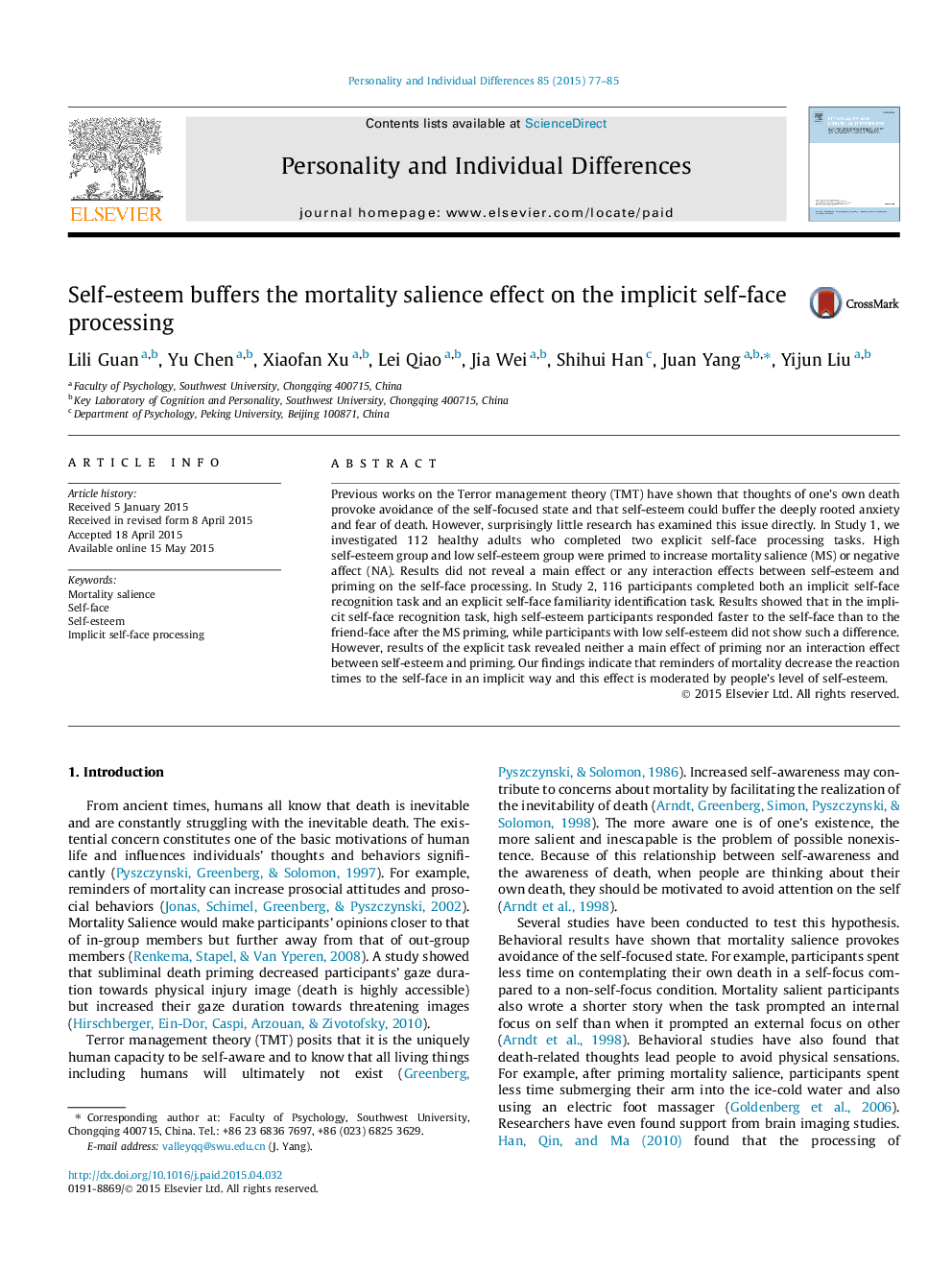| Article ID | Journal | Published Year | Pages | File Type |
|---|---|---|---|---|
| 7251209 | Personality and Individual Differences | 2015 | 9 Pages |
Abstract
Previous works on the Terror management theory (TMT) have shown that thoughts of one's own death provoke avoidance of the self-focused state and that self-esteem could buffer the deeply rooted anxiety and fear of death. However, surprisingly little research has examined this issue directly. In Study 1, we investigated 112 healthy adults who completed two explicit self-face processing tasks. High self-esteem group and low self-esteem group were primed to increase mortality salience (MS) or negative affect (NA). Results did not reveal a main effect or any interaction effects between self-esteem and priming on the self-face processing. In Study 2, 116 participants completed both an implicit self-face recognition task and an explicit self-face familiarity identification task. Results showed that in the implicit self-face recognition task, high self-esteem participants responded faster to the self-face than to the friend-face after the MS priming, while participants with low self-esteem did not show such a difference. However, results of the explicit task revealed neither a main effect of priming nor an interaction effect between self-esteem and priming. Our findings indicate that reminders of mortality decrease the reaction times to the self-face in an implicit way and this effect is moderated by people's level of self-esteem.
Related Topics
Life Sciences
Neuroscience
Behavioral Neuroscience
Authors
Lili Guan, Yu Chen, Xiaofan Xu, Lei Qiao, Jia Wei, Shihui Han, Juan Yang, Yijun Liu,
